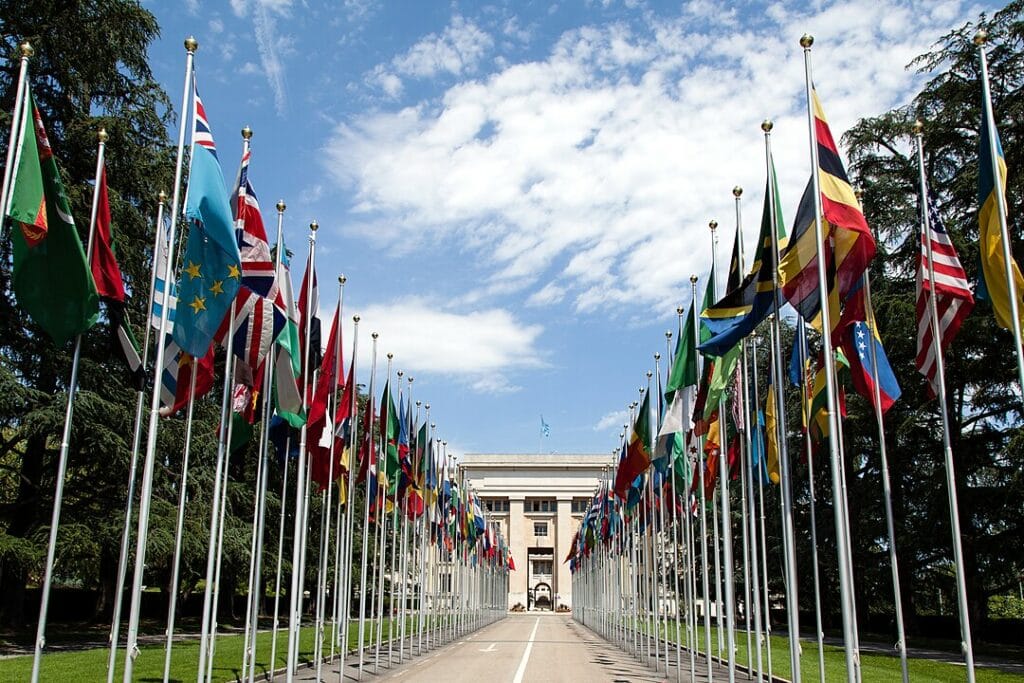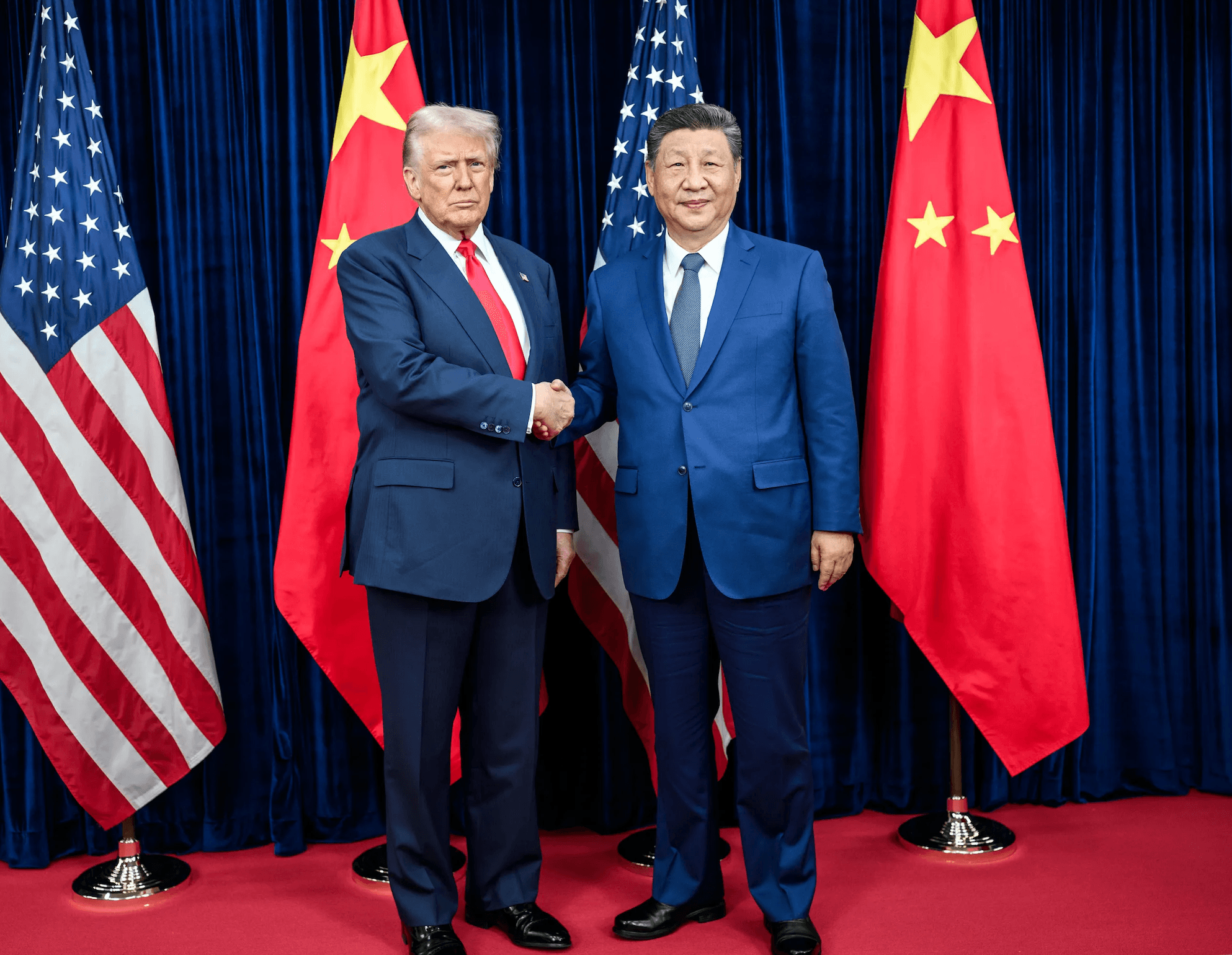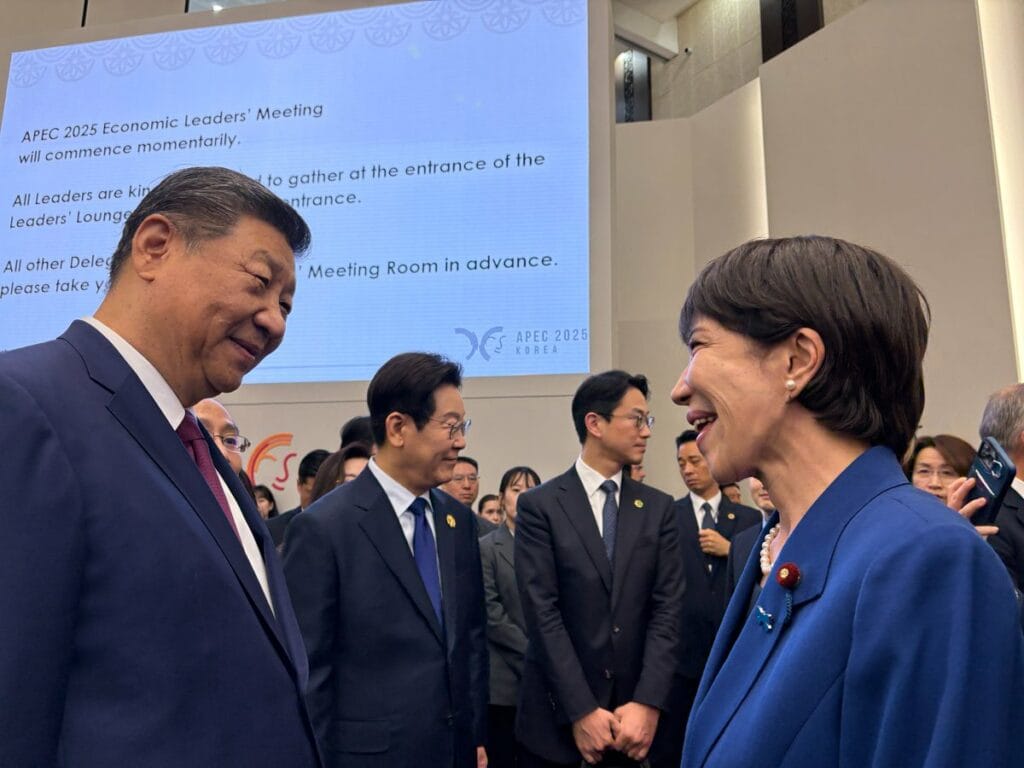Human rights discussions are not always prioritized in diplomatic engagements. Our Winter Digest features the recent meeting between Xi Jinping and Donald Trump and the decision by the United States to decline participation in the Universal Periodic Review. Both events remind us that advocating for fundamental rights requires persistent efforts and voices.
EVENT
United States becomes first country to miss its own Universal Periodic Review

On November 7, the United States skipped its own Universal Periodic Review (UPR) at the United Nations in Geneva. This was the first time for any member of the UN since the UPR was established in 2006.
The UPR is a peer-review mechanism designed to assess the human rights record of all UN member states every four to five years. Before the UPR, the UN Commission on Human Rights (CHR), established in 1946, had lost credibility. Membership was dominated by countries with poor human rights records; they would block resolutions by Western democracies that were critical of their human rights record.
In 2006, the UN General Assembly replaced the CHR with the Human Rights Council (UNHCR) and introduced the UPR. Membership to UNHCR is supposedly limited to countries upholding human rights, and the UPR reduces selective targeting and political deadlock.
From the outset of the second Trump administration, the US has moved decisively away from engagement with the UN’s human-rights body. In February 2025, the president again authorized the US withdrawal from the UNHCR and the cutting off of US participation in related processes. In a public statement, the administration cited “bias against Israel;” it accused the council of hypocrisy and pointed to China’s increasing influence over the process.
The concerns about human rights in the US
With the US skipping the UPR, non-profits like Dui Hua, which is in Special Consultative Status with the UN Economic and Social Council, weighed in, submitting reports that raised concerns over several human rights issues in the United States. Dui Hua focused on the US’s resumption of capital punishment to address violent crime. In January, President Donald Trump issued an executive order that revived the use of the death penalty for federal cases. Shortly after, US Attorney General Pam Bondi lifted a 2021 moratorium on executions as well as reintroduced a 2018 Department of Justice (DOJ) memorandum which established the policy of applying capital punishment to drug related cases:
In addition, the 2025 Memorandum also applies the policy to “cases involving non-drug capital crimes by cartels, transnational criminal organization, and aliens who traverse [the United States] border and remain in the United States without legal status.” The 2025 Memorandum also “strongly” encourages federal prosecutors to “use applicable statutes, when appropriate.”
In its submission, Dui Hua recommended that the administration and DOJ rescind the use of the death penalty and to reinstall the moratorium on federal executions. It also recommended that the DOJ retract the policies it laid out in its February 5, 2025, memorandum that encourages the death penalty for federal crimes.
A difficult relationship history
Since the beginning of the UNHCR and its predecessor, the relationship with the US has oscillated between engagement and criticism, a reflection, perhaps, of the tensions between the US’s human rights rhetoric and domestic and international political realities. In August, the State Department released its annual Country Reports on Human Rights Practices where comprehensive details were scaled back to a bare minimum.
In response to the US disengagement, UNHCR issued a statement on November 7, 2025, saying the US decision was regrettable and that they would “reschedule the universal periodic review of the United States of America, with a view to conducting it in 2026.”
An anti-climactic summit

Presidents Xi Jinping and Donald Trump met in South Korea on October 30, 2025, for their first face-to-face encounter since 2019. After months of ratcheting up economic pressure, they agreed to a one-year trade truce. The US promised to ease tariffs and export controls on semiconductors. Beijing agreed to restart soybean imports and delay new controls on rare earths for a year. According to Trump, there was no mention of Taiwan nor US citizens under exit bans in China. As if to contradict this claim, China reiterated its four “red lines” in US-China relations: Taiwan, human rights and democracy, China’s political system, and China’s right to development the day after the summit.
Human rights issues were not discussed, although Trump reportedly briefly raised the situation of Jimmy Lai, the Hong Kong pro-democracy media publisher who has spent several years in solitary confinement in Hong Kong.
It was goodwill for nearly two hours, but default positions reemerged following the bilateral meeting. During the opening session at the APEC summit, Xi called for maintaining supply chain stability, a subtle dig against US tariff policies.
Just over 24 hours later, US Treasury Secretary Scott Bessent told the Financial Times that China had “made a real mistake” by threatening rare earth export controls. He said that Beijing had “alerted everyone to the danger” and would not be able to use critical minerals as leverage again. He called China an “unreliable partner.”

Perhaps more interesting was what Japan’s new prime minister had to say about her meeting with Xi. Sanae Takaichi publicly stated that she had raised “serious concerns” about China’s actions in the South China Sea, Hong Kong, and Xinjiang during their APEC meeting, making her the only leader to openly acknowledge discussing human rights with the Chinese president.
PUBLICATIONS HIGHLIGHTS
JOHN KAMM REMEMBERS
From John Kamm Remembers, a series written by Dui Hua’s founder recounting his advocacy for prisoners in China.
On the Road in Guangdong Province

Travelling in China for business helped Dui Hua’s Executive Director John Kamm move beyond surface observations. Against the backdrop of China’s storied history, it was on the road that John learned to recognize the logic that influenced everything from business to social interactions. In On the Road in Guangdong Province, John describes the encounters that would inform his human rights work in China in decades to come. Read more
PRISONER UPDATES
Zhang Zhan receives second prison sentence
A lawyer turned civil journalist and rights activist was sentenced to four years’ imprisonment for picking quarrels and provoking trouble (PQPT) on September 19, 2025. This marks her second conviction for the same crime, less than two years after her release in May 2024. Read more
Crackdowns on House Churches Intensifies
Crackdowns on China’s unregistered house churches have intensified following new regulations banning unauthorized online preaching issued by Beijing’s top religious affairs authority. The campaign has involved coordinated raids, mass detentions, and the use of various criminal charges against independent Christian groups that refuse to register under the state-sanctioned Three-Self Patriotic Movement. Read more
